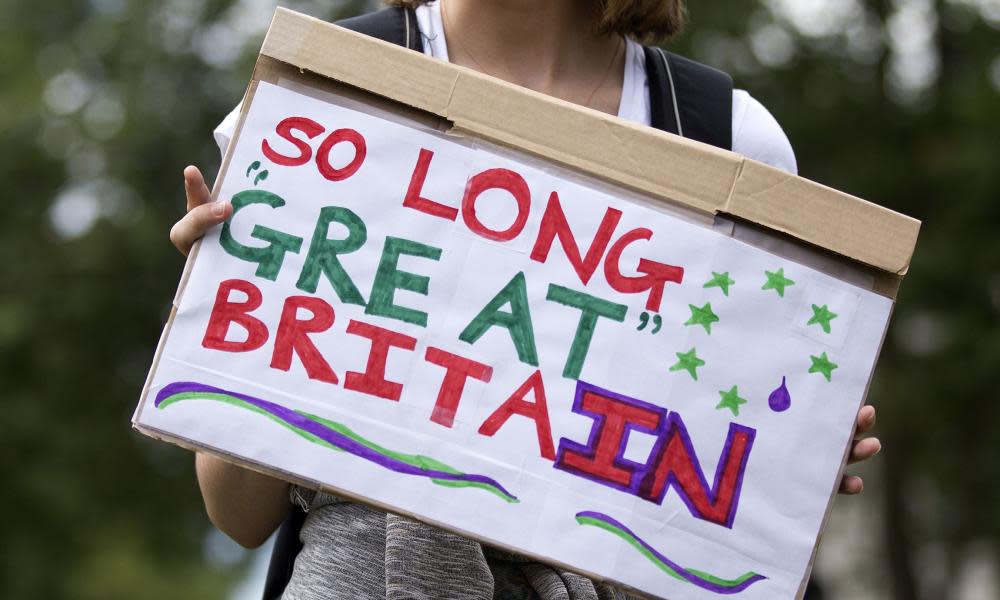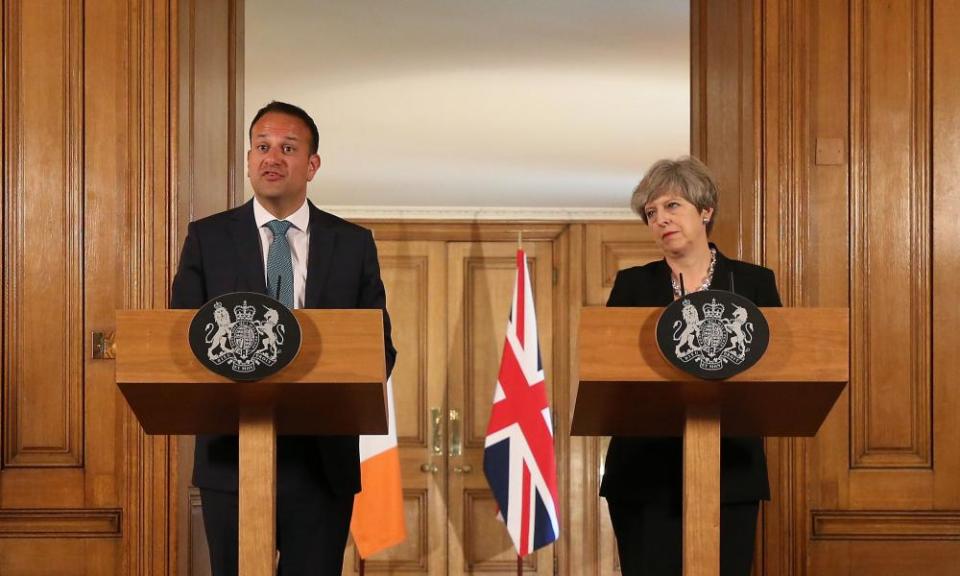Don’t blame the Irish: the Brexit chaos is all about England

Brexit has been derailed, as it was always going to be, by the Irish question. And, amid the chaos, there is something oddly comfortable about this. Isn’t that what the bloody Irish always do – disrupt an otherwise placid British polity with their hopelessly convoluted and unresolvable feuds?
In 1922, reflecting on the way Ireland had dominated imperial politics even on the eve of the great catastrophe of the first world war, a rueful Winston Churchill told the House of Commons: “It says a great deal for the power which Ireland has, both nationalist and orange, to lay their hands upon the vital strings of British life and politics, and to hold, dominate, and convulse, year after year, generation after generation, the politics of this powerful country.”
In this very familiarity lies the lure of self-delusion: Brexit would have been gloriously harmonious if only the orange and green disruptors hadn’t laid their hands upon its vital strings and played on them their own eternally discordant tune. Already, among the Brexiters, there is his self-exculpatory narrative: it wasn’t us, m’lud, who brought our country to this disgraceful state. It was the usual suspects across the Irish Sea.
But beneath this tatty comfort blanket, there are two starkly naked truths. They are not at all familiar – indeed they are startlingly new. They are so novel that the British system has been completely unable to fully recognise or process them. And it is this inability that has made the Brexit negotiations so tortuous and their outcome so miserable.
One of them has to do with a breathtaking shift in the balance of power. The other concerns the inability of the existing political culture to deal with the rise of English nationalism and its vast implications for the existence of the United Kingdom. To resort to the old familiar blame game is to miss what is really going on.
First, negotiations will always be determined by the balance of power. The very poor outcome of the Brexit negotiations for Britain reflects the realpolitik: there was a relatively small and isolated country up against a huge multinational bloc. This is the accustomed way of such things. But this time there has been a staggering variation: the places have changed. Britain, not Ireland, is the relatively small and isolated country. Ireland, not the British Empire, has on its side the power of a huge multinational bloc.
This in itself is deeply disorienting. It is a new thing: the first time in 800 years of Anglo-Irish relations that Ireland has had more clout. No wonder the Brexiters and the British government found it impossible for so long to even recognise this new reality. They operated – and some of them continue to operate – under the old rules, in which the game would be settled between the big powers, and the interests of a small country such as Ireland could be easily shoved aside. The Irish would get a few platitudes about peace but the real deal would be done between London and Berlin.

Yet it has not been like that. In part, this is because of simple arithmetic: Ireland is not isolated, it is part of a bloc of 27 states. There is a basic lesson here for the Brexiters: even a very small country inside the EU has more influence than a much larger country on the outside. In part, too, it is because of basic statecraft. The Irish government and diplomatic service, backed by a near-unanimous consensus in the Dublin parliament, had a very clear sense of where Ireland’s vital national interest lay, and hence of what they needed to achieve.
There was one big thing Ireland could not get: Ireland cannot, much as it would love to, force the UK to stay in the EU. Given this reality, Ireland had three priorities. One was to avoid the reimposition of a hard border between Northern Ireland and the Republic. The second, to protect the 1998 Good Friday agreement and the rights of everyone in Northern Ireland to continuing Irish – and therefore EU – citizenship. The third, to preserve the close personal and economic relationships on these islands by preserving the common travel area and keeping the UK as closely intertwined with the customs union and single market as possible.
There is overwhelming evidence that the English people who voted for Brexit do not, on the whole, care about the UK
Ireland got exactly what it wanted in the draft withdrawal agreement. This undoubtedly shaped the entire deal; but instead of whining about this, the Brexiters might reflect that if they had been as clear about their aims and as skilful in achieving them, we might not all be in the current mess.
The other big new thing is that the force that has shaped one side of Anglo-Irish relations for centuries – British unionism – is visibly faltering. Visibly, that is, everywhere except in Westminster. There is a weird disjunction between what is actually happening in Brexit and the official narrative that has framed it. In part because of the quirk of fate that gave the balance of power at Westminster to a minority Northern Irish party, the DUP, Brexit has been shaped around a sentimental story of rallying behind what Theresa May calls the “precious, precious union”.
But this is fundamentally phoney. There is overwhelming evidence that the English people who voted for Brexit do not, on the whole, care about the United Kingdom and in particular do not care about that part of it called Northern Ireland. Asked in the recent Future of England survey whether “the unravelling of the peace process in Northern Ireland” was a “price worth paying” for Brexit that allows them to “take back control”, fully 83% of leave voters and 73% of Conservative voters in England agreed that it was. Three-quarters of English leave voters said they did not want their taxes to be used to subsidise public services in Northern Ireland. And last week, in a major Channel 4 survey, asked how they would feel if “Brexit leads to Northern Ireland leaving the UK and joining the Republic of Ireland”, 61% of leave voters said they would be “not very concerned” or “not at all concerned”.
These are two seismic shifts. Neither of them is caused by anyone in Ireland. They are products of the rise of English nationalism and of the great Brexit upheaval that has left Britain so deeply uncertain about its identity and its place in the world. To throw up one’s hands in exasperation at the old familiar eruption of the Irish question is to miss the whole point of this moment – which is, of course, the English question.
• Fintan O’Toole is the author of Heroic Failure: Brexit and the Politics of Pain

 Yahoo News
Yahoo News 
